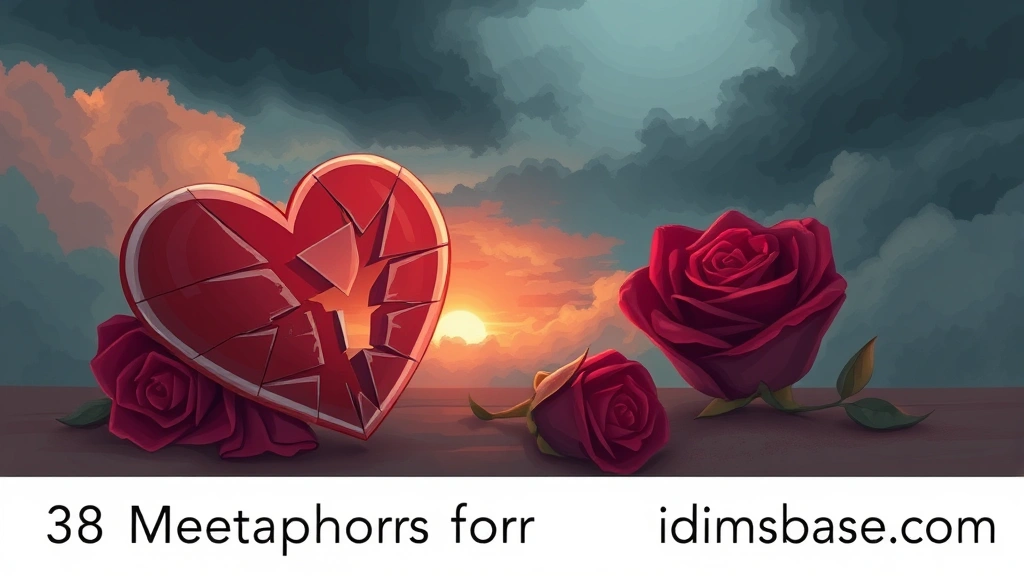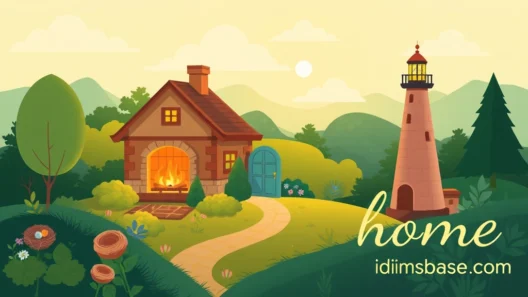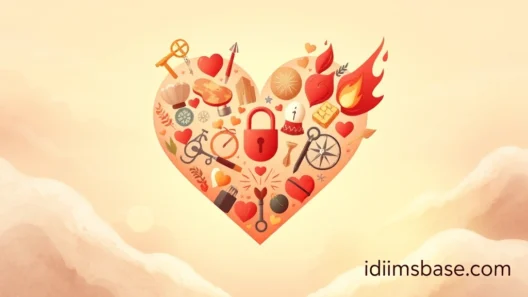Oh, heartbreak! It's a universal language, isn't it? That raw, searing pain that feels like it's tearing you apart from the inside. We've all been there, navigating the choppy waters of a broken heart. Sometimes, words just aren't enough to capture the depth of what you're feeling. That's where metaphors come in! They offer a creative, relatable way to express the inexpressible.
Let's dive into 38 powerful metaphors that perfectly describe the crushing weight, the slow ache, and the eventual healing that comes with a broken heart. You might find one, or many, that resonate deeply with your own experience.
38 Metaphors for Heartbreak: A Symphony of Sorrow and Strength
Heartbreak isn't just a feeling; it's an experience that permeates every part of your being. These metaphors paint vivid pictures of its many facets.
The Shattered and Broken
- A shattered mirror: Your world, once whole and reflecting beauty, now lies in countless sharp pieces, each one a painful shard.
- A house of cards collapsing: What you thought was stable and strong tumbles down in an instant, leaving only a mess.
- A broken vase: Once beautiful and functional, it's now just fragments, impossible to put back together exactly as it was.
- A cracked foundation: The very ground beneath your feet feels unstable, threatening to give way at any moment.
- A puzzle with missing pieces: You try to put your life back together, but crucial parts are gone, leaving an incomplete picture.
- A deflated balloon: All the joy and lightness have escaped, leaving you feeling empty and limp.
- A ship sinking: You're going down with a vessel that once carried your hopes and dreams.
The Physical Pain
- A gaping wound: It's a raw, open injury that throbs with every beat of your heart, refusing to close.
- A punch to the gut: The sudden, unexpected impact leaves you breathless and doubled over in pain.
- A heavy weight on your chest: It feels like an unbearable burden, making it hard to breathe, hard to move.
- A knife twisting in your heart: A sharp, burning sensation that intensifies with every memory, every thought.
- A slow leak: Your energy, your happiness, your very essence slowly draining away, leaving you depleted.
- Being hollowed out: An emptiness where your joy and love used to reside, a vacant space within.
- A bone-deep ache: The pain isn't just superficial; it permeates your entire being, settling deep in your bones.

The Emotional Turmoil
- A storm raging inside: Your emotions are a whirlwind of anger, sadness, confusion, and despair, all battling each other.
- A dark cloud overhead: A constant shadow follows you, dimming every moment, every ray of light.
- A tangled knot: Your thoughts and feelings are so intertwined, so complicated, you can't untangle them.
- An echo in an empty room: The silence is deafening, filled only with the lingering presence of what once was.
- A suffocating blanket: The sadness wraps around you, making it hard to breathe, hard to see a way out.
- A constant drizzle: Not a sudden downpour, but a persistent, gloomy rain that never seems to stop.
The Sense of Loss and Emptiness
- A vacant chair at the table: A reminder of someone who is no longer there, leaving an undeniable void.
- A garden withered and dead: What was once vibrant and full of life is now barren, devoid of color and growth.
- A song without a melody: The harmony is gone, leaving only discordant notes or a profound silence.
- A book with the last pages ripped out: The story is incomplete, the ending snatched away before you could read it.
- A compass without a North Star: You feel lost, directionless, unsure of where to go or what to do next.

The Journey of Healing
- A phoenix rising from the ashes: Though devastated, you have the potential to emerge stronger, more beautiful than before.
- A scar that tells a story: The wound may heal, but the mark remains, a testament to what you've endured and overcome.
- A seed planted in barren ground: From the depths of despair, new life, new hope, can begin to sprout.
- A river carving new paths: Though painful, the experience reshapes you, forging new channels for your emotions and life.
- A broken doll being mended: You're carefully putting yourself back together, piece by painful piece, with care and patience.
- Weathering a storm: You've endured the worst of it, and though battered, you're still standing, stronger for the experience.
- A long tunnel with a light at the end: Though the darkness feels endless, you know there's hope, a way out, eventually.
- Shedding an old skin: The painful process of letting go of the past to allow for new growth and transformation.
- Rebuilding a bridge: It takes time and effort to reconstruct connections, both with others and with yourself.
- Learning to walk again: After being knocked down, you're slowly, painstakingly, finding your footing and moving forward.
- A winter giving way to spring: The cold, desolate period eventually passes, making way for renewal and blossoming.
- Finding new constellations: When your familiar stars disappear, you learn to navigate by new patterns, new sources of light.
- Polishing a tarnished gem: The pain may have dulled your sparkle, but with time and effort, you can shine even brighter.
Key Takeaways
- Heartbreak is a complex emotion, often best described through vivid imagery.
- Metaphors help us understand and articulate the multifaceted pain of a broken heart.
- They also offer hope, showing that healing and transformation are possible even after profound loss.
- Finding a metaphor that resonates with you can be a powerful step in processing your feelings.

Frequently Asked Questions About Heartbreak Metaphors
Q1: Why are metaphors important for understanding heartbreak?
A1: Metaphors are incredibly powerful because they allow us to describe abstract, intense emotions in concrete, relatable ways. When your heart is aching, it's hard to find the right words. Metaphors provide a framework, a visual language, that helps you express what you're feeling and helps others understand. They make the invisible pain visible.
Q2: Can using metaphors help with the healing process?
A2: Absolutely! Articulating your pain, even through metaphors, is a crucial step in processing it. When you can name or visualize what you're going through, it feels less overwhelming. It can also help you feel less alone, as you realize others have described similar experiences. This validation is a significant part of healing.
Q3: Are there different types of heartbreak that these metaphors cover?
A3: Yes, these metaphors are quite versatile! While many might immediately think of romantic heartbreak, these descriptions can apply to various forms of loss: the end of a deep friendship, the passing of a beloved pet, the shattering of a long-held dream, or even profound disappointment. The core feelings of loss, pain, and rebuilding are universal.
Q4: How can I choose the best metaphor to describe my own heartbreak?
A4: The best metaphor is the one that truly resonates with you. Read through the list and see which one makes you nod your head or sigh in recognition. Does your heartbreak feel like a sudden, violent impact, or a slow, draining process? Is it about shattered pieces, or a garden that's withered? Trust your intuition; the right metaphor will speak to your experience.
Q5: Do these metaphors suggest a timeline for healing?
A5: Not explicitly, and that's important! Healing from heartbreak is a deeply personal journey with no set timeline. Some metaphors, like "a shattered mirror," describe the initial shock, while others, like "a scar that tells a story" or "a phoenix rising," speak to the long-term process of recovery and transformation. They acknowledge that healing isn't linear but a gradual process of mending and growing.
Q6: Can metaphors about heartbreak also offer hope?
A6: Definitely! While many metaphors capture the initial pain, several on our list, especially those in the "Journey of Healing" section, are inherently hopeful. They suggest that even from the deepest despair, there is potential for renewal, strength, and new beginnings. Think of "a winter giving way to spring" or "a phoenix rising from the ashes"—they powerfully convey the idea that growth can emerge from even the most painful experiences. They remind you that you are resilient.
Heartbreak is tough, but you're tougher. We hope these metaphors offer you a way to understand, express, and ultimately navigate your journey through pain to healing. Which metaphor resonates most with you? Share your thoughts and let us know!






